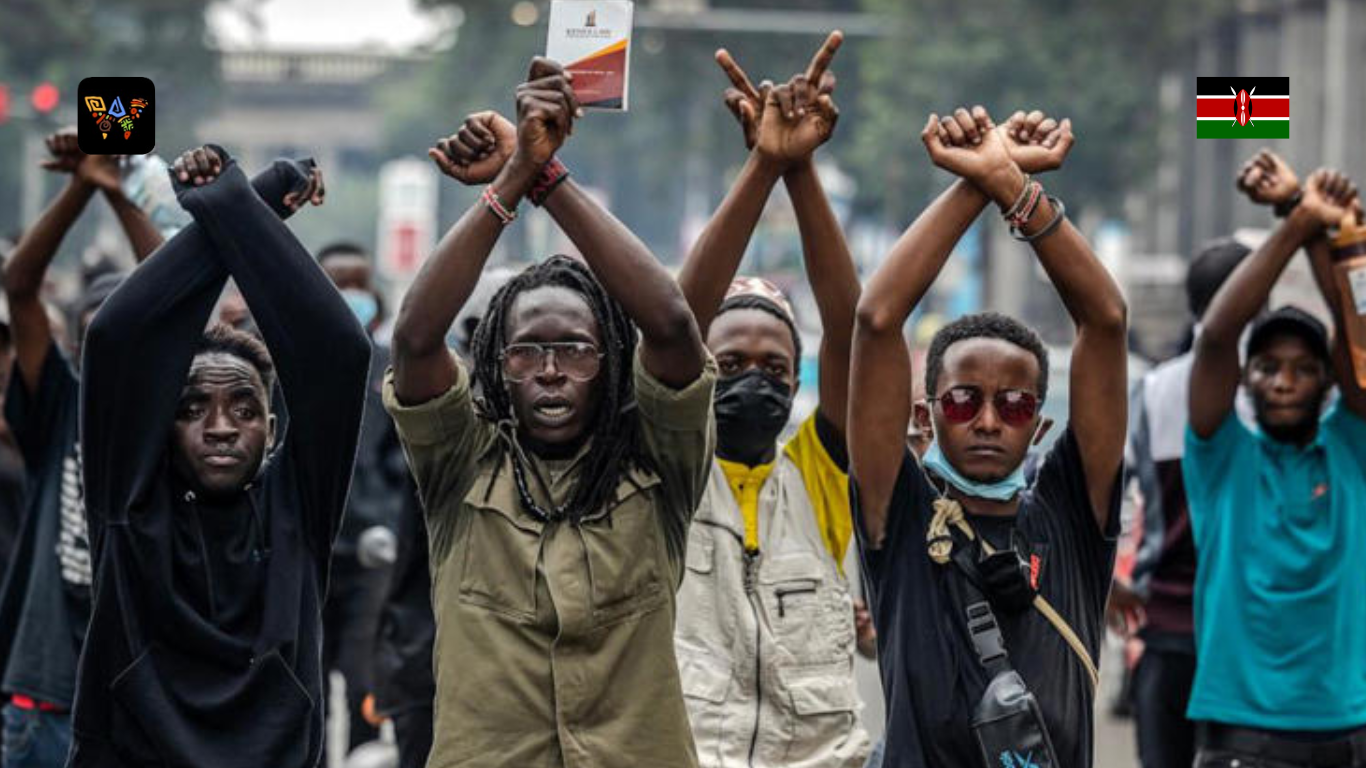
Young Kenyans Set For Another Protest Over Finance Tax Bill

In a protest dubbed “occupy parliament”, young Kenyans are set for another protest against the Finance Bill, which has called for more taxation across the East African nation.
The controversial bill, also known as the Finance Bill 2024, was published on May 9, 2024, and presented for the first reading before the National Assembly on Monday, May 13, 2024.
The bill proposed various amendments to the Income Tax Act, the Value Added Tax Act of 2013, the Tax Procedures Act of 2015, the Tax Appeals Tribunal Act of 2013, the Excise Duty Act of 2015, and the Miscellaneous Fees and Levies Act of 2016 among other Acts of Parliament.
After its proposition, Kenya’s National Assembly’s Departmental Committee for Finance and National Planning issued a public notice inviting the public and other stakeholders to submit comments by Tuesday, May 28, 2024, before it approves the bill into law by June 30 2024.
However, despite the opportunity provided in the Constitution to voice their opinions on the proposed amendments before they become law, Kenyans took to the streets on Tuesday to express their discontent.

At least 283 protesters were reportedly arrested, including four journalists.

The Finance Tax Bill
The bill, as proposed, was to become effective on July 1, which the protesters deemed would add to the economic burden of Kenyans already struggling with a high cost of living.
Following the outrage, Kenya’s President, William Ruto, said, “The changes to the Finance Bill have taken into account the views of the people and other stakeholders during public participation sessions.”
Among the amendments are the scrapping of the proposed 16 % VAT on bread, taxes on foreign exchange transactions and financial services, and a 2.5 % Motor Vehicle tax.
With a continuous protest over the controversial tax bill, Kenya’s Ruto faces another bottleneck in achieving what he considers a means to solving Kenya’s rising cost of living crisis.
About The Author
Mayowa Durosinmi
author
M. Durosinmi is a West Africa Weekly investigative reporter covering Politics, Human Rights, Health, and Security in West Africa and the Sahel Region
Mayowa Durosinmi
M. Durosinmi is a West Africa Weekly investigative reporter covering Politics, Human Rights, Health, and Security in West Africa and the Sahel Region
Related Articles
Gabon Suspends Social Media “Until Further Notice” Amid Rising Unrest
Gabon’s media regulator has announced the suspension of social media platforms nationwide,...
ByWest Africa WeeklyFebruary 18, 2026Côte d’Ivoire Feeds the World’s Chocolate Industry, But When Prices Shift, Cocoa Farmers Are Left With Rotting Harvests and No Income
Côte d’Ivoire produces nearly half of the world’s cocoa, a crop that...
ByWest Africa WeeklyFebruary 18, 2026Niger’s Tiani Visits Algeria in Bid to Strengthen Ties and Revive Key Projects
Abdourahamane Tiani, Niger’s head of state, is on an official visit to...
ByWest Africa WeeklyFebruary 18, 2026Niger’s Tiani Accuses France of Plotting Attack on Niamey Military Base
Niger’s head of state, General Abdourahamane Tiani, has renewed his accusations against...
ByWest Africa WeeklyFebruary 18, 2026











